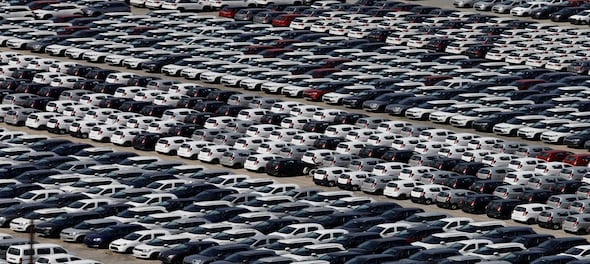
After a tumultuous 2020, carmakers around the world are counting on 2021 as a year of recovery. While last year saw demand for automobiles move across the entire spectrum of all-time low levels to a steady, incremental increase in sales, the financial year 2021 will still be lower in terms of volumes than the preceding year. While the sustained recovery in passenger vehicles has exceeded expectations of a demand revival, flags significant downside risks to demands in economies like India.
Covid alters future buying intent globally
More than a third of the consumers surveyed in India (1002) said they will delay the Deloitte’s Global Automotive Consumer Study 2021purchase of their next vehicle. Around 38 per cent of the consumers surveyed said they have pushed forward their plans to buy a new vehicle to a later time in India, the highest among the 23 countries surveyed, with the Republic of Korea (32 per cent) and China (29 per cent) following the suit. Further, 65 per cent consumers said they now intended to buy a less expensive vehicle than was originally planned.
Younger customers feeling the heat?
According to the study, 52 per cent of Indian consumers requested to defer their car loan payments last year, and 49 per cent of them were in the age group of 18-34 years. Compared to other countries, this number was significantly higher in India: 24 per cent of the respondents in China said they had requested payment deferments, and 23 per cent said same in the United States. Developed economies show older populations have higher resilience, with less than 20 per cent consumers delaying purchases (US - 17 per cent), (Germany - 14 per cent), (Japan - 18 per cent).
Move to virtual steady, but touch and feel important
According to the survey, 27 per cent of the Indian consumers said they were willing to purchase their next vehicle through a fully virtual route, but 75 per cent of them wanted to see the vehicle before buying it and 58 per cent said they would test drive the vehicle.
Many hurdles to cross for EVs
Nearly 68 per cent of Indian consumers said they were looking for a traditional internal combustion engine in their next vehicle, instead of an electric vehicle. While COVID-19 did in some measure bring in greater environmental consciousness, a vast majority of customers continue to favor conventional vehicles for the reasons listed below:
• Lack of charging infrastructure (26%)
• Safety concerns (25%)
• High prices (16%)
• Time required to charge (14%)
• Driving range (13%)
• Lack of choices (6%)
For India, unlike the other countries surveyed, the major hurdle for EV adoption seemed to be a lack of charging infrastructure and safety concerns, while most countries rates range anxiety as their biggest concern. The bottom line? There are significant downside risks to demand in emerging economies like India, as customers take longer to make purchasing decisions and gravitate towards more familiar and affordable options.
(Edited by : Priyanka Rathi)
Check out our in-depth Market Coverage, Business News & get real-time Stock Market Updates on CNBC-TV18. Also, Watch our channels CNBC-TV18, CNBC Awaaz and CNBC Bajar Live on-the-go!


Stampede-like situation disrupts Rahul Gandhi, Akhilesh Yadav's joint rally in Uttar Pradesh
May 19, 2024 4:26 PM
Ladakh Lok Sabha election: With Independent candidate's entry, it's now a 3-way contest for BJP and Congress
May 19, 2024 4:01 PM

